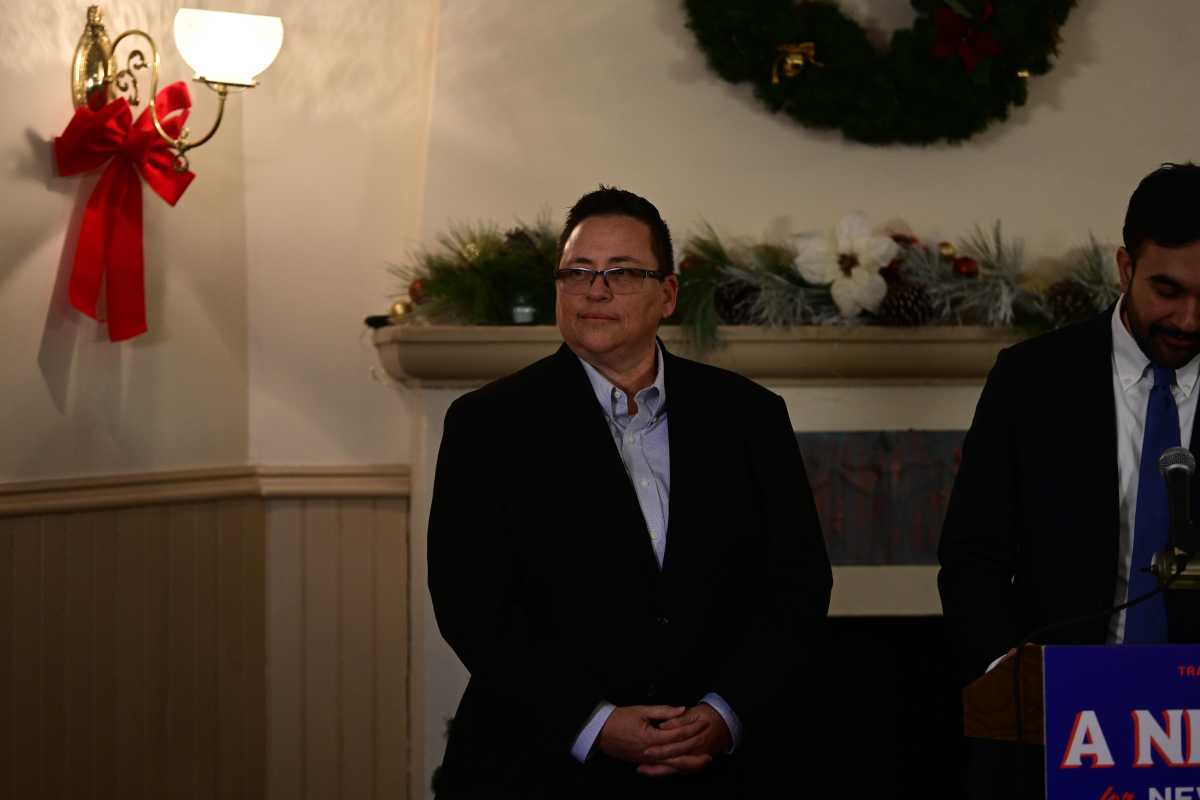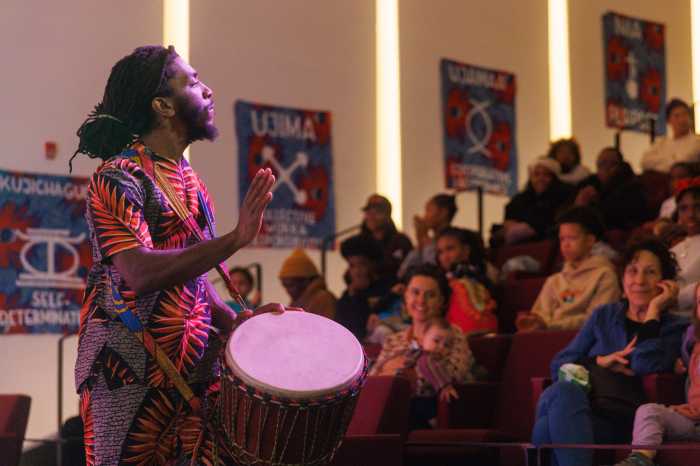Westchester court says state sex discrimination law bars gender bias
<<As early as 1977, a state court ruled that sex discrimination provisions of New York State law protected tennis star Dr. Renee Richards from public accommodations discrimination by the U.S. Tennis Association. A Westchester judge has now come to the same conclusion about employment law.
BY ARTHUR S. LEONARD
In what appears to be the first such ruling by a New York State court, a Westchester County judge ruled in an employment discrimination case that “transgendered persons” are protected from workplace discrimination by the sex discrimination provision in New York State’s Human Rights Law.
Justice Joan B. Lefkowitz’s August 9 decision, first made public in a New York Law Journal article published August 17, does not describe the facts of the case, but the article reported them based on an interview with one of the plaintiff’s attorneys, Louis Ginsberg of White Plains.
Eric Buffong, who worked as a cook at Tarrytown’s Castle on the Hudson restaurant, encountered difficulties at work after a co-worker brought in a high school yearbook depicting Buffong as a woman, Erica Buffong. Four months of harassment by co-workers and reduction in his working hours culminated, Buffong alleged, in his discriminatory discharge in May 2005. He sued the restaurant, claiming a violation of the State Human Rights Law and seeking $3 million in damages. Westchester County has a ban on sex and sexual orientation discrimination, but the county ordinance does not provide for state court lawsuits and damages.
The state Human Rights Law forbids sex and sexual orientation discrimination, but does not specifically mention discrimination based on gender identity or expression, the language that was added to the New York City Human Rights Law in 2002 specifically to protect transsexuals from discrimination. The campaign to enact the Employment Non-Discrimination Act at the state level a few years ago was clouded by the refusal of advocates for SONDA, most prominently Empire State Pride Agenda, to insist on specific reference to gender identity in the bill, fearing that this would prevent its passage.
At the time, some SONDA supporters pointed to statements from district attorneys across New York indicating that they would interpret the 2000 Hate Crimes Act, which included the same formulation about sex and sexual orientation, but not gender identity or expression, to nevertheless protected transgendered victims of bias crime. Transgender rights advocates argued that the case for sex anti-discrimination language protecting transsexuals was not clear-cut and that bias victims should not have to prove that point in court.
Judge Lefkowitz noted court precedents supporting Buffong’s claim, in her decision to deny the restaurant’s motion to dismiss the complaint. First, she pointed out, before the New York City Human Rights Law was amended specifically to protect transsexuals, it had been interpreted in various cases to already provide such protection under the sex discrimination provision.
In rulings prior to 2002, state court judges had applied the New York City Human Rights Law to employment cases to protect transgendered plaintiffs, and that had been a key reason Mayor Rudy Giuliani and City Council Speaker Peter Vallone had offered in defense of their inaction on the gender identity and expression amendment while they remained in office through the end of 2001.
As early as 1977, a state judge ruled that the state sex discrimination law protected famed tennis pro Dr. Renee Richards, who was known prior to transitioning as Dr. Richard Raskind, from discriminatory treatment by officials of the U.S. Tennis Association, who had refused to let Richards compete as a woman at Forest Hills. Richards litigated this case, however, not as a matter of employment bias, but rather in terms of the law’s application to places of public accommodation.
Some federal judges, ruling as early as 1996 and as recently as 2003 in cases where state law was applicable, predicted that New York courts, when confronted directly with the issue, would find the state sex discrimination law applicable to cases of anti-transsexual employment discrimination.
But Lefkowitz is apparently the first to clearly take such a step in the case of state law regarding employment, according to the Law Journal’s report.
“Transgendered persons are either male or female,” Lefkowitz wrote. “Case law supports the view that a transgendered person states a claim pursuant to New York State’s Human Rights Law on the ground that the word ‘sex’ in the statute covers transsexuals. This Court agrees that plaintiff’s claim falls within the liberal interpretation to be accorded the New York State Human Rights Law. Accordingly, the motion to dismiss the complaint is denied.”
This ruling will allow the case to proceed to discovery and the possibility that the restaurant will make a settlement offer.
Lefkowitz’s ruling is consistent with a recent trend in the federal appeals courts to find protection for transsexuals under various federal sex discrimination laws, on the theory that discrimination due to stereotyped views about gender often amounts to sex discrimination, even though the federal laws do not specifically mention gender identity and one federal civil rights law, the Americans With Disabilities Act, specifically states that transsexuality cannot be construed to be a disability afforded protection under that law.
Lefkowitz’s ruling is also consistent with appellate precedent interpreting the similarly-worded New Jersey Law Against Discrimination, in a case involving a transsexual doctor.
gaycitynews.com


































